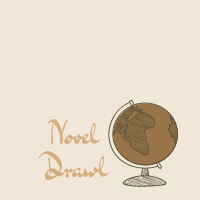MapLemon Full Data Now on GitHub!
Hey folks! MapLemon data collection has officially finished! Here is the GitHub link: https://github.com/tdmmct/maplemon
Stats:
54000 words
346 participants
40 US states; 6 Canadian provinces
30 linguistic backgrounds
57 transgender men
84 transgender women
124 non binary people; 73 amab, 46 afab
65 cisgender women
32 cisgender men
PUBLISHED!
Nearly a month late (blame the holidays), I am SO proud to announce that MapLemon has been published in Digital Studies/Le Champ Numérique! It is open access, and can be viewed here: https://doi.org/10.16995/dscn.9665
Thank you so much to the editors for working with me extensively! And Happy New Year, everyone!
Thank you, GC Digital Initiatives!
Another wonderful lightning talk session down. It was great to see all the Digital Humanities work being done within CUNY! Thank you to the Digital Initiatives for the invite to speak. I love showing the results of Project MapLemon to the local community. I’d say see you next year, but I’ll have graduated, and hopefully be across the pond. Cheers!
LanGeSex: The Conference We All Needed
I presented Project MapLemon at Language, Gender, & Sexuality at the University of Helsinki this October and was immersed in the most accepting academic environment I have ever set foot in. Amazing research, amazing people, and I truly hope there will be another LanGeSex in the future.
I want to thank everyone there for this wonderful opportunity, it was truly a conference for the ages! See you next year…!?
Conference Trail Postmortem & Updates – FEAT. A Bonus Announcement!
Hello, world! The MapLemon team had a wonderful month gallivanting across the world to showcase our corpus. Our first stop was Keystone DH in Baltimore, MD, USA; then QUALICO in Lausanne, CH; and Corpus Linguistics in Lancaster, UK.
We also touched on the successes of the EViL Lab through the lens of MapLemon during the workshop sessions before Digital Humanities ’23 in Graz, Austria.
FURTHERMORE (yes, even more!), hello to everyone from the Stylometry Retreat in Vienna!
It was truly an honor to present MapLemon at all of these conferences. We got some great feedback as well as potential collaborators and future projects using MapLemon.
MapLemon currently has one journal article in pre-publication with Digital Studies/Le Champ Numérique, and an article from Digital Humanities will also be published.
We are currently collecting data from transwomen, as well as beginning work on localizing MapLemon into… Dutch! Yes, MapLemon is going international! But first- IRB approval.
As usual… if anyone out there is reading this and knows of funding sources, be it for travel or otherwise, please send them my way! You all (whoever that is) have my email: tmanning@gradcenter.cuny.edu. Don’t be shy! If you have any ideas or collaborators, potential journals to submit to, or even just want to send fanmail (we should all do this more!!)- hit me up.
FINALLY… MAPLEMON IS GOING TO LANGUAGE, GENDER, AND SEX IN HELSINKI, FINLAND!!! See you in October, and thank you SO MUCH to the organizers for this wonderful opportunity.
Peace outtie!
-Teddy (as if anyone else writes on this blog, I kinda just felt like signing off heheh)
Slides for the GC Digital Showcase
In case we have any traffic from those at the showcase on May 10th, where I’m presenting about MapLemon as a Provost’s Digital Initiatives Grant recipient.
Keystone DH!
The Map Lemon team will be presenting at Keystone DH at Johns Hopkins this June! Quite a busy summer we’re going to have. It’s an honor to have all these amazing opportunities 🙂 See you there!
See you in Lancaster, and MORE!
I’m so excited to announce that Map Lemon will be presented at Corpus Linguistics ’23 at the University of Lancaster, UK!
Furthermore, Map Lemon has been accepted for its FIRST FULL JOURNAL ARTICLE in Digital Studies/Le Champ Numérique!
Finally… we got a grant!!! The next iterations of Map Lemon data collection will be funded by the CUNY Graduate Center’s Provost Digital Innovation Grant, with a white paper forthcoming, as well as a presentation at the Graduate Center Digital Showcase this May.
Thank you so much to all those at the EViL Lab, and the editors and reviewers, and faculty who have made this project’s recent strides possible.
Swiss-bound, baby!
I am so pleased to announce the Project Map Lemon will be seeing you at the QUALICO ’23 conference in Switzerland! I am so thrilled to have been accepted for a talk there, and hope to get lots of feedback from the larger community while I’m there. I’ll be joined by other members from the EVL Lab at Duquesne University, some of which I’ll be meeting for the first time in person since the world ended, which is just crazy! I am so honored, and many many more adjectives.
Ahh, money.
Short update: currently working on securing funding via grant proposals for the next round of Map Lemon respondents; this round will be another focused on Queer people to really elaborate on the data that already exists and reaffirm our suspicions.
After that, depending on the results from analysis we may want to look more into nonbinary people (currently researching methods to analyze their data while avoiding binarism, btw!), we may want to look more into ethnicity, sexuality, etc.
I’ve also fantasized about being able to do research on the effect being neurodivergent vs neurotypical would have on these results, especially since Queerness tends to overlap with neurodivergence, but I think the IRB approval on that would be tricky–we’ll see for the future.


